Home gardening: as long as you master these balcony vegetable growing skills, your food will be too rotten to eat!
I believe everyone is no stranger to growing vegetables on the balcony. It is becoming more and more popular. On the one hand, it can eat fresh and pollution-free vegetables, and on the other hand, it can beautify the family environment.
Why not?
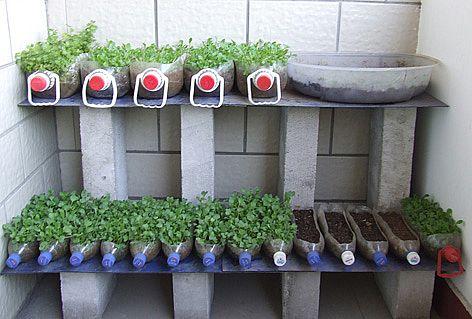
In fact, there is a lot of knowledge about growing vegetables on the balcony, and the editor will come one by one for you.
What kind of balcony is suitable for growing vegetables?
Not all balconies are suitable for growing vegetables, if you do not consider the actual environment, random planting, the loss may outweigh the gain. The balcony suitable for growing vegetables should have sufficient light, good ventilation, no leakage on the balcony floor and good drainage.
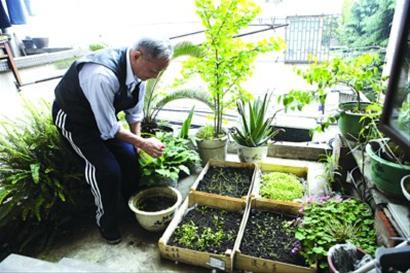
Can I grow a small balcony space at home?
The balcony space is limited, must go to the high place or metope development, can use hanging flower racks, hanging pots and so on. However, it should be noted that the over-intensive planting environment is easy to produce airtight, breeding diseases and insect pests and other problems, the planting process should leave a certain amount of space, maintain good ventilation, vegetables can grow well.
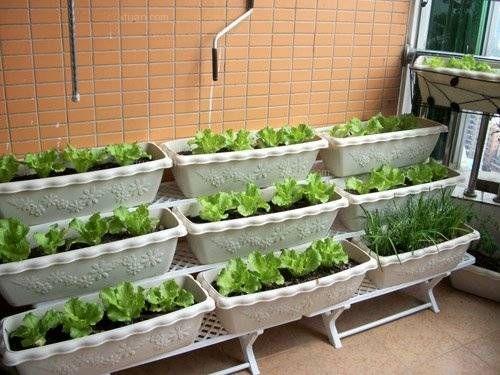
What kind of vegetables do you usually grow on the balcony?
What vegetables to grow on the balcony, on the one hand, according to personal interests and needs, on the other hand, we should consider which vegetables are suitable for the environmental conditions of our own balcony. Generally speaking, if space permits, most vegetables and fruits can be planted on the balcony.
Fast-growing vegetables with short cycle: rape, garlic, sprouts, mustard, Qingjiang vegetables, rape
Vegetables with long harvest time: tomato, chili, leek, coriander, coriander, onion, etc.
Space-saving vegetables: carrots, radishes, lettuce, spring onions, ginger, coriander
Vegetables that are easy to grow: balsam pear, carrots, ginger, onions, lettuce, Chinese cabbage
Vegetables that are not easy to grow insects: spring onions, leeks, sweet potato leaves, ginseng grass, aloe, carrots.
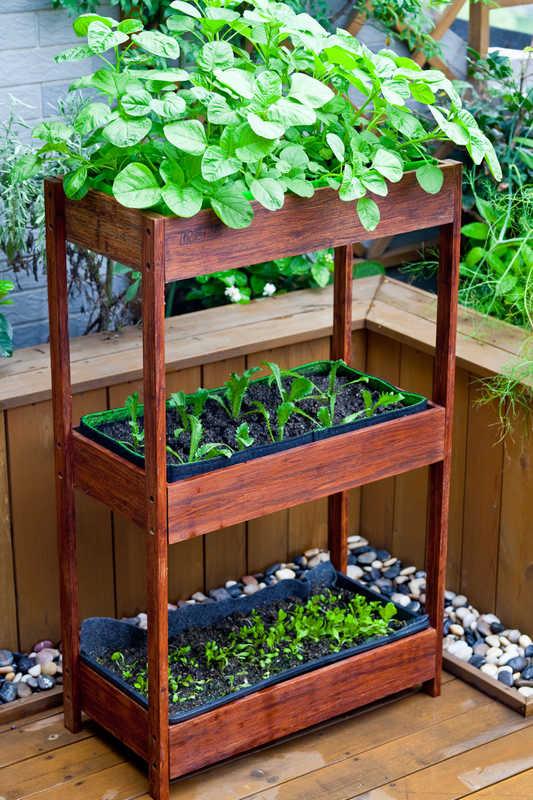
What kind of pot do you use to grow vegetables on the balcony?
1. Choose large and breathable containers, such as planting boxes, large tile pots, wooden boxes and so on. Foaming boxes and plastic pots are not good, which can easily lead to rotten roots, mildew and other problems. There is the plastic basin is not sun-resistant, it is easy to age out!
2. The best way to grow vegetables on the balcony is to choose a planting box. The material of the planting box is specially added with antioxidants and ultraviolet absorbers, which can prolong the service life of the box and can be used for more than 8 years in the outdoor environment.
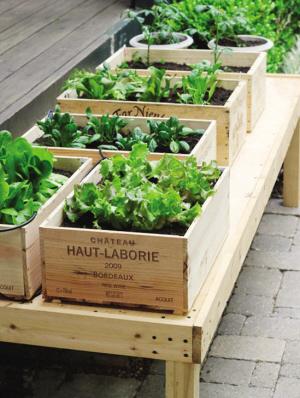
What are the methods of balcony planting?
One is to raise seedlings before transplanting, and the other is to sow seeds directly. Some people like to sell seedlings directly to plant, which is faster and more convenient, while others prefer to start with seeds.
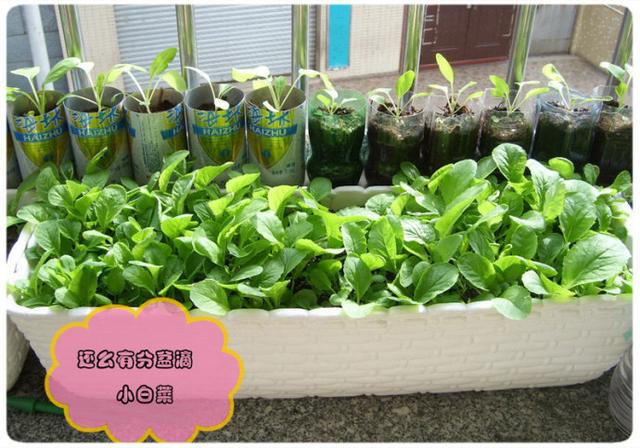
What are the light and temperature requirements for growing vegetables on the balcony?
For different vegetables, the demand for sunlight is different, most vegetables like the sun, but do not rule out some do not like the sun, can be placed according to the light characteristics of vegetables.
Temperature, different direction of the balcony or windowsill, should be heat preservation, cooling according to weather changes, while paying attention to the strength of the light to avoid light or increase light, and so on.
What are the requirements for watering when growing vegetables on the balcony?
1. The balcony is a closed environment, and the excess water in the soil is very difficult to decompose, which will cause vegetables to get sick or grow.
2. Therefore, the most taboo of growing vegetables on the balcony is to pour a lot of water at the seedling stage, which will not promote growth, but will cause slow growth of vegetables or root rot and plant death.
3. Growing vegetables on the balcony must be watered less and watered less at the seedling stage.
What are the fertilizer requirements for growing vegetables on the balcony?
1. Soilless cultivation
The main results are as follows: 1. The key is to irrigate the nutrient solution, the principle of which is that it is irrigated in sunny days, but not in cloudy and rainy days, less watering in the early growth period and more watering in the fruit period.
2. generally, the nutrient solution should be changed thoroughly every 20 days or so.
II. Soil cultivation
1. Amoy rice water, peel, kitchen residue and other materials are retted into organic fertilizer for vegetables, so that what we eat is a kind of healthy and pollution-free food.
2. There are all kinds of special organic fertilizers in the agronomic market, and suitable organic fertilizers can be selected according to the types of vegetables.
3. Nutrient solution can also be used for soil cultivation.
What are the ventilation requirements for growing vegetables on the balcony?
1. Poor ventilation will lead to a variety of diseases and insect pests, such as plant root fester and aphids, especially in summer, high temperature and lack of ventilation is the hotbed for the occurrence of various diseases.
2. In the process of planting, we have to rotate these plants regularly so that all vegetables can get plenty of fresh air without being attacked by strong winds.
3. The higher the floor, the more the plants of the windowsill and balcony will be affected by the wind. Under the condition of ventilation, the windshield can be used to prevent some leafy vegetable plants from being damaged by the wind.
What if there are diseases and insect pests when growing vegetables on the balcony?
1. The purpose of growing your own vegetables is to be green and organic, and you must not apply pesticides casually. In fact, some garlic water or cut tobacco water is sprayed on the plants, which have a pungent smell, and pests will not like it.
2. Do not grow only one kind of vegetable in a container for a long time, otherwise it is prone to soil degradation and disease increase.
If you master these skills, do you still worry that you have nothing to eat?
- Prev
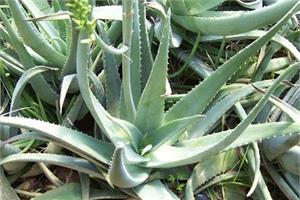
Basic information of tequila how to cultivate tequila well
Basic information of tequila how to cultivate tequila well
- Next

Agricultural tools recommended: 2018 new weeding artifact, garden and horticultural supplies, weeding, loosening soil and seedling fork
In the field, there is a recommendation called Qiqi Bud, the leaves are covered with thorns, especially when they die, it is easy for them to stick into the meat, and when they are young, they pull up this grass.
Related
- Wuhan Hospital Iron Tree Blooming Result Was Instantly Frightened by the Gardener Master
- Which variety of camellia is the most fragrant and best? Which one do you like best?
- What is the small blue coat, the breeding methods and matters needing attention of the succulent plant
- Dormancy time and maintenance management of succulent plants during dormancy
- Minas succulent how to raise, Minas succulent plant pictures
- What are the varieties of winter succulent plants
- How to raise succulent plants in twelve rolls? let's take a look at some experience of breeding twelve rolls.
- Attention should be paid to water control for succulent plants during dormant period (winter and summer)
- Watering experience of twelve rolls of succulent plants
- Techniques for fertilizing succulent plants. An article will let you know how to fertilize succulent plants.

